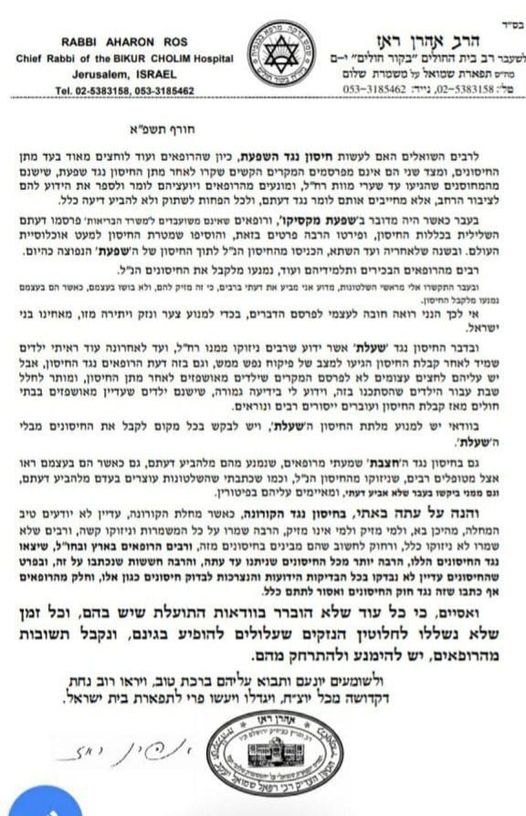The American Medical Association has been adamantly against hydroxychloroquine as a therapeutic for COVID for the past year. Just a few days before the presidential election they reversed course, reversing their opposition. Did they suddenly realize HCQ might have benefit in certain patient groups or were they lying for the past year? How many individuals died as a result of being denied potential lifesaving treatment?
The AMA is synonymous with organized medicine, despite myriad specialty societies that may better represent the needs of its member physicians. In fact, only 12 percent of practicing physicians belong to the AMA due to concerns that the AMA is more interested in its own finances and politics than the concerns of doctors.
When the AMA talks, media and the public listen, due to their perceived clout. Last spring, the AMA issued a statement critical of hydroxychloroquine as it was being used off-label in the treatment of COVID, not FDA-approved for this purpose with supposed “dangerous side effects.”
Quietly at the end of October, the AMA issued a new statement, conveniently overlooked by the media, giving the green light to doctors prescribing HCQ to their COVID patients.
RESOLVED, that our American Medical Association rescind its statement calling for physicians to stop prescribing hydroxychloroquine and chloroquine until sufficient evidence becomes available to conclusively illustrate that the harm associated with use outweighs benefit early in the disease course.
An updated statement clarifying our support for a physician’s ability to prescribe an FDA-approved medication for off label use, if it is in her/his best clinical judgement, with specific reference to the use of hydroxychloroquine and combination therapies for the treatment of the earliest stage of COVID-19.
What changed since last spring? How many COVID deaths could have been prevented if doctors, using their professional and clinical judgement, could have prescribed HCQ without fear of ostracization or loss of their jobs?
HCQ has been around since the 1950s, approved as a malarial preventative and for treatment of lupus and rheumatoid arthritis. It is relatively safe, except for the one in a thousand with a rare cardiac arrhythmia, easily identified by a pretreatment EKG. In many African countries, HCQ is available without a prescription for malaria prevention.
The problem arose when President Trump touted HCQ as a “potential therapeutic,” based on early reports of doctors prescribing it with good results. He did not tell anyone to take it but held it out as hope to a country suffering under a pandemic with lockdowns, quarantines, hospitalizations, and deaths.
Trump also took HCQ himself, prescribed by the White House medical team. If Trump claimed drinking water was healthy, the media and medical establishment would have denounced it, citing cases of people dying from drinking too much water.
A perfect example was Fox News crank Neil Cavuto screaming how hydroxy “will kill you.” This was based on a flawed VA study finding no benefit for HCQ in a severely ill cohort of patients, and a higher death rate among those receiving HCQ. This was a retrospective study which did not address the possibility that HCQ was given to sicker patients, who were more likely to die anyway.
Prestigious medical journals, Lancet and New England Journal, retracted published studies raising alarms about HCQ due to bogus study data. It seemed there was a jihad against HCQ from the medical establishment, supported by the media, simply because the Orange Man suggested it.
Was the concern solely over off-label use of drugs? In my world, Avastin has been successfully used off-label for 15 years for the treatment of macular degeneration and diabetic retinopathy, despite FDA approval only for cancer and a black box warning about gastrointestinal perforation, wound healing, and hemorrhage.
In relative terms, HCQ is a far safer drug compared to Avastin. Ketamine is another old drug similar to HCQ, FDA-approved in 1970 as a general anesthetic. Yet it is increasingly being used off-label to treat severe depression, anxiety, and PTSD. As a general anesthetic, it certainly can kill you if used improperly, but used under the considered judgment of a physician, it can literally save lives. Neil Cavuto hasn’t yet offered his expert medical opinion on ketamine.
There have been 187 hydroxy studies, 122 of which were peer-reviewed. 100 percent of these studies reported positive effects for early treatment of COVID, meaning, for those not yet in the hospital, and certainly not on a ventilator. These studies were performed and reported this year, while the AMA stayed mum, standing by their admonition against HCQ, until their “oh by the way” report at the end of October.
The AMA’s about-face is curious in terms of timing. They could have tempered their initial remarks last summer, when the “America’s Frontline Doctors” group was promoting HCQ, azithromycin, and zinc as an effective early treatment for COVID. All three components of their cocktail were off label. In fact, at the time there was no approved therapeutic for COVID and many people could have been treated earlier, potentially keeping them out of the hospital or worse.
Perfect is the enemy of good. Prospective randomized clinical trials would have been great, but they take time. Why not let physicians use their “best clinical judgment” as the recent AMA statement recommends?
Instead, the AMA waited until Oct. 30 to announce a more reasoned position, not coincidently just a few days before the presidential election. Democrats and the media blamed Trump for every COVID illness and death, accusing Trump of “misleading” on HCQ, as a prominent campaign issue.
Continue reading…

